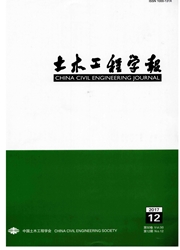

 中文摘要:
中文摘要:
公共代理机构通过合同对私人部门所施加的恰到好处的控制是PPP项目成功的关键。基于自动履约理论和相关文献分析,提出PPP项目中公共代理机构对私人部门控制的构念及其结构维度;结合前期质性研究成果提出了这一构念的初始量表,并运用结构方程模型的方法对其进行实证检验,最终开发了一个包含产出控制、行为控制、偏差控制三个维度共计29个题项的量表,鉴于该量表是通过调研中国PPP市场开发并验证的,故其仅适用于中国PPP项目。由实证分析结果得出对于PPP项目实践的三点管理启示:对结果的控制应相对重于对过程的控制、行为控制应以通过机制设计实现私人部门的“自我控制”为主、偏差控制应着力于对违约责任与救济措施的约定。
 英文摘要:
英文摘要:
It is the key for PPP projects to get success that the public agency can control the private properly through the contract. The construction of control by the public agency to the private and its dimensions are proposed based on the theory of self-enforcing contractual arrangement and relevant literature review. A preliminary scale for the construct is presented on the basis of the results of previous qualitative research. Then it is validated using structural equation modeling, resulting in a scale including 29 items in 3 dimensions, i.e. output control, behaviour control and deviation control. Because the scale is established and tested based on the material and data from Chinese market of PPP, it can only be applyed to PPP projects in China. Three suggestions are offered to the public agency : ( 1 ) more attention should be paid to the control of the result than the process; (2) the major behavior control should achieve the private ' selfcontrol' through more mechanism design; (3) the emphasis of deviation control should be changed to the liability for breach contract and remedy measures.
 同期刊论文项目
同期刊论文项目
 同项目期刊论文
同项目期刊论文
 期刊信息
期刊信息
